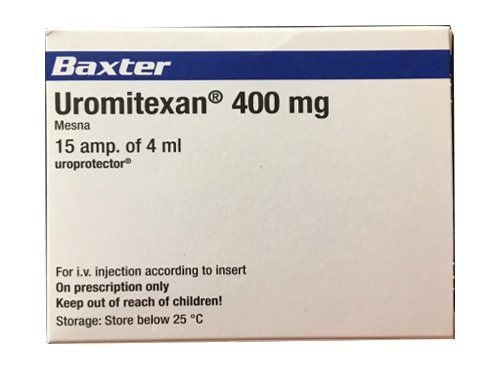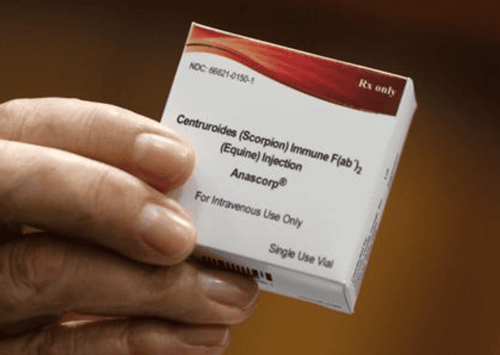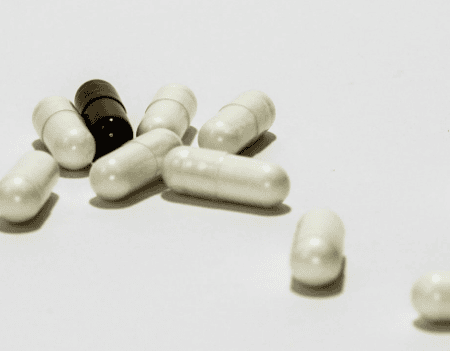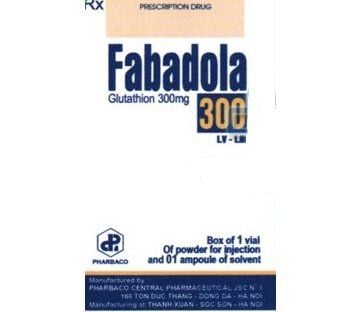This is an automatically translated article.
Fabadola is a drug belonging to the group of emergency and antidote drugs, used in the treatment of patients with acute and chronic poisoning. So what is Fabadola drug, contraindicated in what diseases?
1. What is Fabadola?
Fabadola is a drug with the main ingredient Glutathion 900mg, used mainly to support patients with cancer or some other poisoning cases. Dosage form: Powder for injection Packaging: Box of 1 vial of 0.9g with 1 tube of distilled water for injection.
2. Indications and contraindications of the drug Fabadola
2.1. Indications Fabadola is indicated in the following cases:
Support to reduce the neurotoxicity of radiation therapy and chemicals in cancer treatment. Support in the treatment of mercury poisoning: Combination of specific drugs to treat mercury poisoning such as 2,3-dimercaptoprnpan-l-suronat and meso-2,3-dimercaptosuccinic acid, in combination with high-dose vitamin C to help blood concentration. The level of mercury in the blood decreases. Support in the treatment of alcoholic cirrhosis, cirrhosis, hepatitis caused by viruses B, C, D and fatty liver: The biochemical indicators, the patient's condition, liver cell damage will be significantly improved. . Support for the treatment of diseases related to peripheral and coronary disorders and hematologic disorders: The hemodynamic indices of the circulatory system will be improved to help patients not feel pain when walking in different areas. Patients with lower extremity artery occlusion. Support for the treatment of subarachnoid bleeding: Glutathion helps improve symptoms of subarachnoid bleeding for patients. Support in the treatment of non-insulin-dependent diabetes mellitus: Helps increase insulin sensitivity in these patients. Aids in the treatment of acute pancreatitis: Effective for preserving organ functions from attack by chemical mediators when inflammation occurs. Support for treatment of infertility in men: Intramuscular injection of glutathione for more than two months will help improve sperm morphology and motility. 2.2.Contraindications Patients who are allergic to glutathione or its components should not use Fabadola.
3. Dosage - How to use
3.1. Intravenous dose: 600mg/day. More severe conditions use doses from 600-1200mg/day Intravenous administration
Helps reduce neurotoxicity of radiation therapy and cancer chemotherapy: 15 minutes before radiation therapy: Dose 1200mg and slow intravenous infusion. 15 minutes before chemotherapy regimen of chemicals (cisplatin, cyclophophamide, oxaplatin): 1500-2400mg dose, repeat dose 900-1200mg after 2nd and 5th day of treatment, slow intravenous infusion . Depending on the patient's condition, the doctor may repeat the weekly dose of 1200mg. Support in the treatment of mercury poisoning
Fabadola drug in combination with specific drugs to treat mercury poisoning such as 2,3 - dimercaptopropan-1- sulfonate and meso - 1,3- dimercaptosuccinic acid, in combination with vitamin C High doses are known to reduce mercury levels in the blood. During acute mercury poisoning, the dose is 1200-1800 mg/day and the dose is maintained at 600 mg/day until recovery.
Support in the treatment of alcoholic cirrhosis, cirrhosis, hepatitis caused by viruses B, C, D and fatty liver
Dosage 600-1200mg/day, slow intravenous injection in support treatment of alcoholic cirrhosis. Dosage 600-1200mg/day, slow intravenous injection until recovery in the treatment of cirrhosis, hepatitis B, C, D and fatty liver. Support for the treatment of diseases related to peripheral, coronary and hematologic disorders
Peripheral vascular disorders at a dose of 600mg/time, 2 times/day, intravenous infusion at the rate according to doctor's orders. Barovascular disease is used at a dose of 1200-3000 mg or 300 mg directly into the left coronary artery. Patients on dialysis due to chronic renal failure: Infusion of fabadoal at a dose of 1200 mg/day at the end of each dialysis cycle reduces the dose of erythropoietin by more than 50%. Support for treatment of subarachnoid hemorrhage: Slow intravenous infusion of 600mg Fabadola immediately after surgery, repeat the above dose every 6 hours for about 14 days or more according to the patient's condition. Support in the treatment of non-insulin-dependent diabetes mellitus: dose from 600-1200mg/day, continuous slow intravenous injection for a week, then 2-3 times a week, 0.6g each time. Support in the treatment of acute pancreatitis: dose from 600-1200mg/day, slow intravenous injection. It is necessary to follow the exact dose of Fabadola prescribed by the doctor or the manufacturer's instructions for use. Without a doctor's prescription, the operator must not arbitrarily calculate, apply and adjust the dose for the patient.
Use by intramuscular route:
Used in the treatment of male infertility: dose from 600-1200mg/day, continuous intramuscular injection for two months.
3.2. How to use Fabadola Intravenous: Reconstitute the 1200mg powder vial with 4ml of distilled water for injection, then dilute with at least 20ml of infusion solution such as 5% or 10% dextrose, 0.9% sodium chloride, lactated ringer, sodium bicarbonate 1.4%...Infusion over 30 minutes. Intramuscular injection: After mixing with distilled water, the solution is stable for about 2 hours at room temperature about 25 degrees Celsius or 8 hours at 0-5 degrees Celsius.
4. Side effects when using the drug Fabadola
Nausea, vomiting and headache were the most common adverse events in patients prescribed fabadola. A few may cause a skin rash that will clear up when the medication is stopped. However, be sure to inform your doctor of any side effects you experience while taking the drug.
5. Drug interactions
Drug interactions can change your ability to work or increase the risk of harmful side effects for the user. Therefore, in the process of being prescribed fabadola medicine, it is necessary to inform your doctor about the drugs you are using or plan to use during the time of taking fabadola to use the drug to get the best effect.
6. Notes when taking Fabadola
Fabadola drug is a drug for injection, so to give it intravenously, the drug must be completely dissolved in the water for injection of the manufacturer. After mixing, it will give a clear, colorless solution and slow injection. For pregnant and lactating women, although many experimental studies have shown no evidence of an effect of glutathione on the fetus, Fabadola is not recommended during these periods. A number of adverse effects have been reported with the use of the drug which may affect the ability to drive and use machines. Therefore, be careful when using Fabadola for those who are performing jobs to avoid unfortunate consequences. Fabadola is a drug belonging to the group of emergency and antidote drugs, used in the treatment of patients with acute and chronic poisoning. To ensure effective treatment and avoid unwanted side effects, patients need to strictly follow the instructions of the doctor and medical staff.
Follow Vinmec International General Hospital website to get more health, nutrition and beauty information to protect the health of yourself and your loved ones in your family.
Please dial HOTLINE for more information or register for an appointment HERE. Download MyVinmec app to make appointments faster and to manage your bookings easily.













